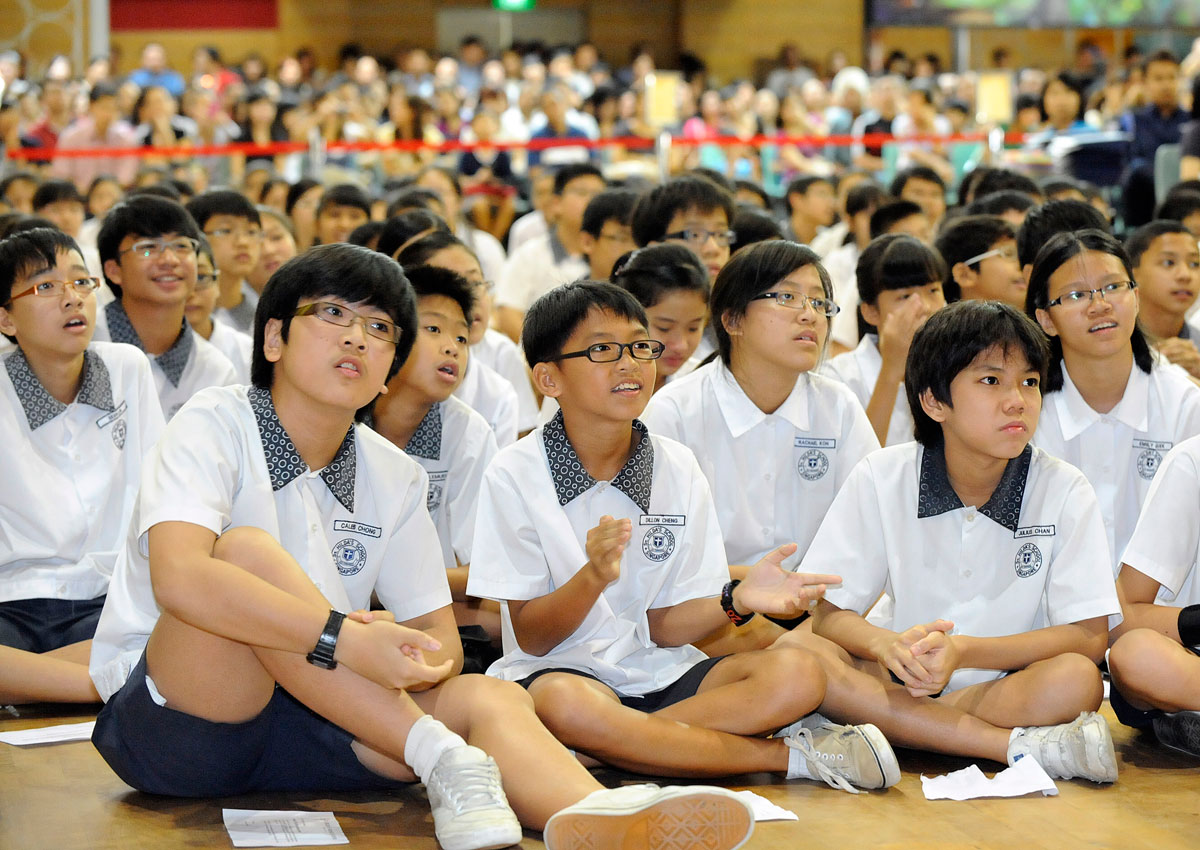LET’S be realistic. If there’s a route for parents to guarantee their kids a spot in the school of their choice, that route will be gamed.
Changing the Primary School Leaving Examination (PSLE) grading system to broad bands rather than precise number scores and tweaking the Direct School Admission (DSA) scheme may create a generation of incredibly proficient individuals, but it will neither reduce the amount of pressure that parents place on their young children nor guarantee that our education system produces youth that are both technically and emotionally well-rounded.
What those tweaks do not address is the bigger problem that lies at the heart of the education issue: Can a Singaporean reasonably expect success in life by pursuing his or her passion, even if that passion is not mainstream?
I will admit that when I first heard about plans to change the way in which primary school pupils will be allocated places in secondary schools, as Acting Education Minister Ng Chee Meng (Schools) announced in Parliament on Friday, I immediately began to think of how to take advantage of the new rules.
That is because I am the father of two, both of whom will be affected by the new policies. I therefore plead a fiduciary – nay, make that a downright moral – obligation to think like a psycho deranged rodent on steroids when it comes to my children’s education.
On Friday, Mr Ng said that the grading of the PSLE will use letter bands similar to the O and A Levels for this year’s Primary One pupils, and will no longer be based on how pupils do relative to their peers.
The Ministry of Education will also look into the DSA scheme to realign it with its original intent to recognise achievements in non-academic areas.
What Mr Ng was trying to tell us was that we should encourage our children to strive for more than just academic excellence and to focus on their own learning instead of competing with others.
But if you are a Singaporean parent, what you probably heard was: “Instead of sending your spawn to tuition classes for just academic subjects, now you must also send them for classes on sports or arts or music or whatever new criteria we want to assess, the gods have mercy on you all.”
It is inevitable that most parents will try to put their children in the best position to succeed. There are certain secondary schools in Singapore that have gained a reputation, mostly deserved, for being able to deliver an excellent education for their students, and you cannot fault parents for wanting to get their children into those schools.
The Ministry of Education’s solution of placing more emphasis on non-academic areas does not remove the desire and pressure to excel and get into those schools.
It merely shifts the target and form of that obsession. Sure, we might get children who can do math and play sports too, but none of them would have spent much time in the playgrounds because they are now going for enrichment classes not just for academic subjects, but for non-academic ones too.
The bigger question is why parents feel such a great need to get their children into the best schools in the first place, and the simple answer is that there is a very high perceived correlation between getting your child into a good school and the child’s success later on in life.
What Singapore must do is to create and increase acceptance of a diversity of paths to a good life, so that a top school is deemed to be less of a determinant in later success. For example, while it would be unfeasible and unfair to the brightest students to make all schools uniformly equal, the government should try to reduce gaps, real or perceived, in the quality of teaching and access to resources between schools.
I should declare, partly for the benefit of the other parents in my elder child’s Primary One class, that I am totally, totally not one of those crazy kiasu parents, haha, so no need to send your child to an enrichment class that could give your kid a leg up on mine, no. Please. Don’t.
But I will admit that I will spend a lot of time trying to figure out ways to beat the system, not necessarily to do it, but to know what the competition will do. Sorry, Mr Ng, but whatever criteria you use to rank students, Singaporean parents will game it.
That is because we want the best for our children. The hope is that, by the time I have to fully confront the PSLE, what is best will not just be a good school.
kenlim@sph.com.sg

This article was first published on April 9, 2016.
Get The Business Times for more stories.






